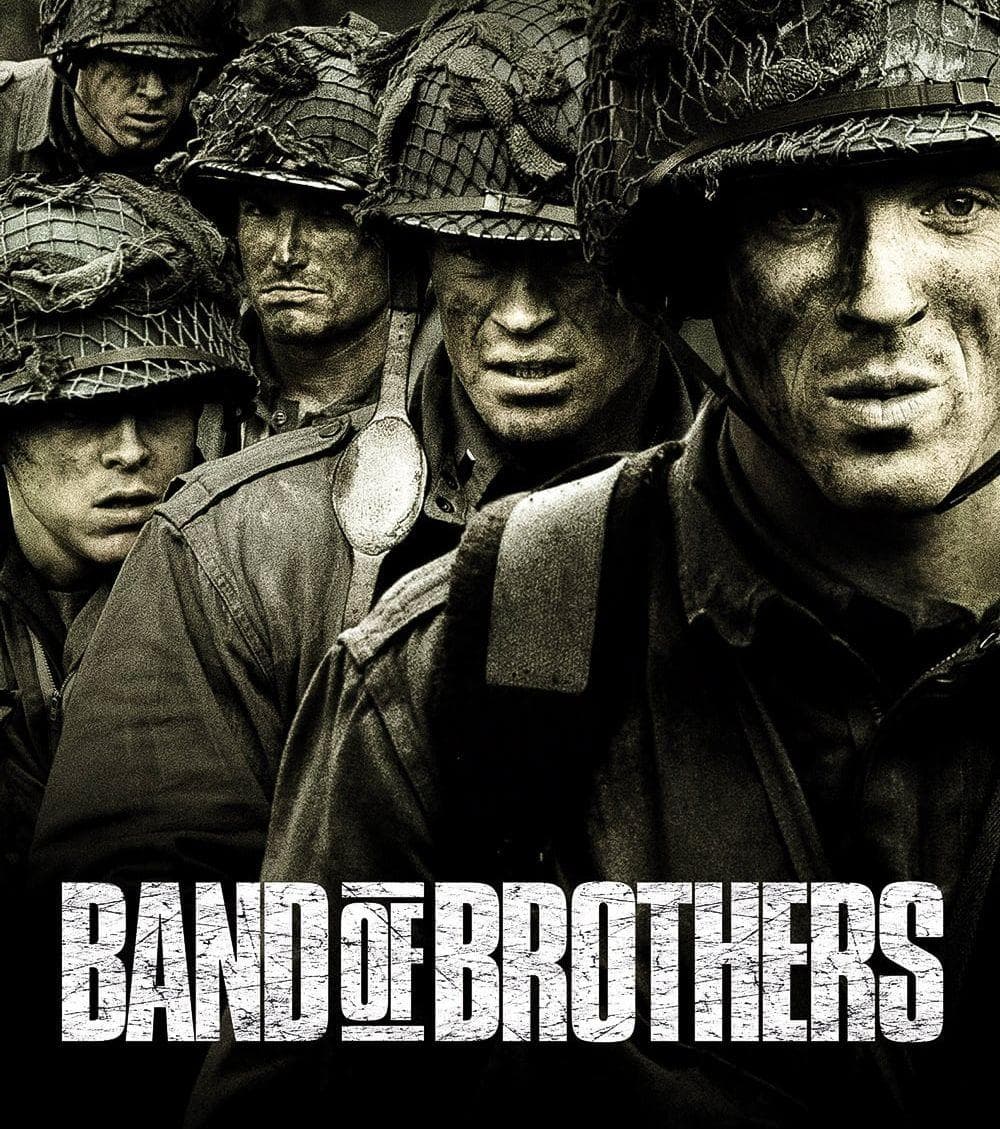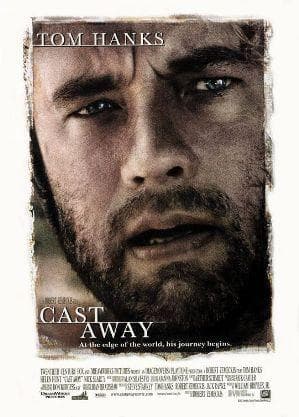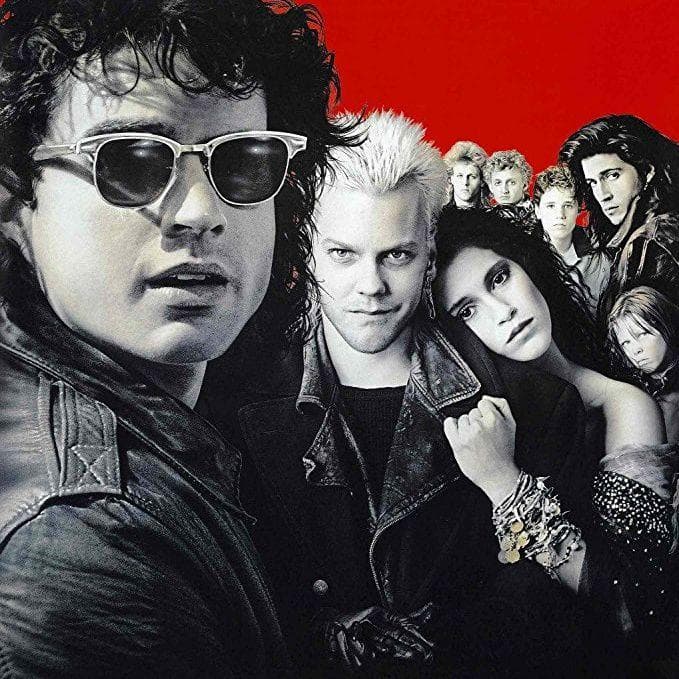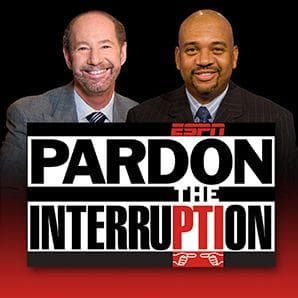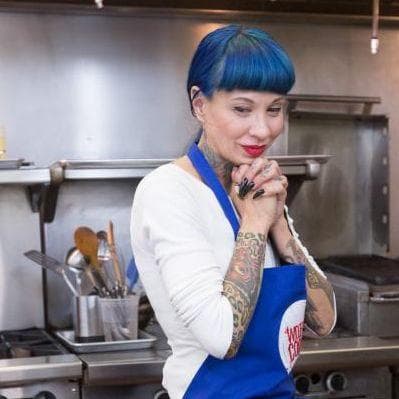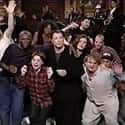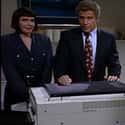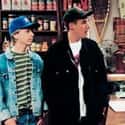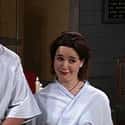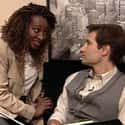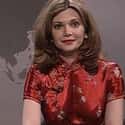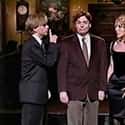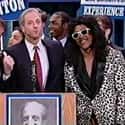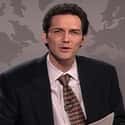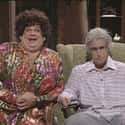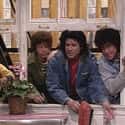-
(#1) Lorne Michaels Describes The Season As The 'Closest' He Ever Came To 'Being Fired'
In the 2007 documentary Saturday Night Live in the '90s: Pop Culture Nation, show producer Lorne Michaels indicated that the struggles of the 1994-1995 season almost cost him his job. Critics called SNL "dysfunctional" and "embarrassing," something substantiated by ever-declining ratings.
According to NBC executive Don Ohlmeyer, "Lorne knew that there was a problem, but I think he was unsure of exactly what the problem was... I never gave Lorne an ultimatum. But what I basically said to him is, 'The show has to get better.'"
Michaels claimed, "I don't think I'd ever been as scared." He knew he was in danger of being "broke and washed up."
As a result, Michaels took a drastic approach to revamping the show, firing many of the major players when the season came to an end. While Adam Sandler and Chris Farley, among others, were still on contract with SNL, they found themselves on the chopping block and off the show for the 1995-1996 season.
-
(#2) The Departures Of Phil Hartman, Julia Sweeney, And Rob Schneider Created An Unfillable Vacuum
Going into the 20th season of SNL, there were big shoes left to fill by the off-season exits of Phil Hartman, Julia Sweeney, and Rob Schneider.
Phil Hartman, who regularly played President Bill Clinton, joined the show in 1986. During his eight-season run, his range allowed him to take on all kinds of characters. According to Al Jean, SNL's executive producer, "Phil made the material funnier than we originally imagined, and I couldn't imagine anybody else doing it."
In the first sketch of the 1994-1995 season, SNL acknowledged Hartman's absence, bringing on numerous cast members - including newbie Chris Elliott - to audition to be the next on-screen Clinton.
Sweeney - known for Pat, among other characters - was honest about her decision to leave, stating, "Everybody says the show is a boys' club, right? Well, it's everything you think it is, times a hundred." She elaborated further:
I love the show, I really do. I love Lorne. Those people are like my family. But it's like a big, alcoholic, (messed)-up family. They do a lot of 14-year-old-boy humor - they just love fart jokes and vomit jokes - and they're very good at it.
Schneider later said, "All in all, I had a great experience at SNL," but wanted to take on other projects.
-
(#3) Only 'Cigarettes And Stoli' Kept Janeane Garofalo Sane
With the exit of Phil Hartman, Julia Sweeney, and others, Lorne Michaels brought in new cast members like Chris Elliott and Janeane Garofalo. Garofalo, known for her roles on The Larry Sanders Show and The Ben Stiller Show, struggled throughout the season.
The characters she was given were unenlightened and stereotypical, with relatively few lines. On one show, the December 10, 1994, episode hosted by Alec Baldwin, Garofalo found herself with "things to do in sketches," which was exciting because her family was there to watch the show. In the end, she "was usually embarrassed. My family did not like the show that season. My father felt that his intelligence was being insulted."
Garofalo reportedly told friends it was "the most miserable experience of" her life, attributing her survival to "cigarettes and Stoli."
-
(#4) The 'Hazing' And Internal Pecking Order Made New Talent Begin To Reject The Show
Janeane Garofalo likened her first few months on SNL to "hazing... Fraternity hazing. It's hard. It takes its toll on you. But I think you come out much better in the end. If nothing else, this experience has just toughened me up."
Air time seemed to be distributed according to tenure on the show, with competing personalities draining SNL of its comedic energy. Observers indicated, "You feel it as soon as you walk into the writers' room... It's a depressed, kind of lethargic burnout."
An SNL writer observed how the cast members couldn't "even fake forcing themselves to care." According to the writer:
When you watch the show on TV, that comes through - it really seems taken with itself. And when it's as bad as it can be, and people still act like there's nothing wrong, then it's sort of like a f**k-you to the audience - "We don’t have to be good, because we're Saturday Night Live!" It's like the post office. "What are you gonna do, deliver the mail yourself?"
-
(#5) Though The Cast Produced Memorable Sketches, They Also Made Some Of The Biggest Bombs
As morale and ratings declined at SNL during the 1994-1995 season, writers noticed the subject matter took a downhill trajectory, as well. Writers Bonnie and Terry Turner, who had penned skits like "Wayne's World" and the Church Lady sketches, were disappointed to see "less about relationships... Unless the relationship is between a man and his shoe, rather than actual people."
Similarly, sketches like "Gay Stripper Theater" indicated to Janeane Garofalo that, "They love the anal sex here... that's considered incredibly funny." It wasn't something she found amusing, nor was an alien skit that included anal probes and the word "b*tch" written across male cast members' chests in lipstick. Garofalo, who later said she "wanted to quit after the first week," found it nausea-inducing instead.
There were some bright points during the season, however. Al Franken continued to appear as Stuart Smalley, Chris Farley as Matt Foley remained popular, and the Gap Girls - featuring Farley, Adam Sandler, and David Spade - brought lots of laughs.
-
(#6) Several Cast Members Left Mid-Season, While New Blood Came On The Scene
Janeane Garofalo left SNL in March 1995, weeks before the season officially ended. She later stated she "did not think we were doing a quality show, and if you mentioned that, you found you were an extremely unwelcome guest."
The addition of Molly Shannon and Morwenna Banks during the season accompanied the additional exit of Mike Myers, who left in January. Paralleling writer Anne Beatts's description of the early days of the show as "a combination of summer camp and concentration camp," Myers called it "a cross between Love Boat and Das Boot" at the time of his departure.
-
(#7) Tension Between Writers And Performers Developed For Numerous Reasons
Most of the writers on SNL were former Ivy Leaguers, including Harvard grads like Lewis Morton, David Mandel, and Steve Lookner. Cast member Ellen Cleghorne saw this as problematic because there were "no Black writers on the show." Cleghorne lamented, "I feel like I'm in a bad sci-fi movie where all the Black people already got killed and I'm next."
While cast members were also expected to write, there was a disconnect between who would and would not have sketches appear on the show. Chris Elliott found that the pressure to write and perform could be bothersome: "If you wanted to get on the air, you had to write some material for yourself."
The tensions and animosities, in Lorne Michaels's opinion, were natural. When it came to how writers viewed the performers, Michaels noted writers may have been "dismayed at the fortunes amassed by some performers once they left the show," acknowledging that the show "was apparently being looked upon even by some of its cast and creative team the way the network regarded it - as an ATM rather than a learning experience or a creative challenge."
-
(#8) Thing Could Get Incredibly Personal And Ugly
Laura Kightlinger, a new addition to SNL that year, tried to play into some of the more immature and raunchy sketches, even suggesting that a line like, "I'm gonna give ya the wood" - sung by Michael McKean to Sarah Jessica Parker - go even further. When Kightlinger tried to broach the subject, however, her fellow writers turned on her "with these really vicious, mean sexual things," according to one of the actress's friends. "She's one of the strongest people I know. Very tough to faze. And it made her cry."
Kightlinger had writing experience, having written for Roseanne, and learned at that moment to "pare down my sarcasm big-time. In the writers' room at Roseanne, you could sh*t on each other and everybody would laugh. But here... it gets personal in a hurry."
-
(#9) Lorne Michaels's Standoffish Demeanor Kept Hosts, Cast Members, And Staffers On Edge
Sarah Jessica Parker hosted the November 12, 1994, episode of SNL, the fifth of the season. She recalled the week building up to the show, especially how Lorne Michaels would "put his head down and not pay attention" when she tried to talk to him. She had to tell herself not to "take it personally... [but] if I had been my normal self, I would have really flipped out."
Michaels wasn't one to cozy up to anyone on the show, sitting far apart from writers and performers during read-throughs, rehearsals, and any social gatherings. Former SNL performers recalled Michaels "becoming aloof" during the early years of the show, noting, "Lorne always wanted to be admired - revered, even."
During the 1994-1995 season, however, the crew indicated their disappointment with Michaels's changing behavior: "There's a real difference between running a kind of rebel outfit and running an institution," according to one cast member, indicating they'd rather know the rebel leader than the king atop his throne.
Still other observers felt Michaels intentionally kept the cast feeling ill at ease, likening it to "the same techniques cults use - they keep you up for hours, they never let you know that you're okay, they always make you think that your spot could be taken at any moment by someone else."
-
(#10) There May Have Been Too Much Talent On The Show - Or Just Too Many People
Cast member Tim Meadows saw the 1994-1995 season as "the worst year," in large part because "there were too many people." From Meadows's perspective, the writers and cast didn't "gel," and it "seemed like there were 30 people trying to race to the finish line... There were a lot of talented people [who] went on to do other things."
Meadows, one of the few cast members to survive the culling of the cast that took place before the 21st season, wasn't alone in his assessment. Chris Elliott observed:
There were so many people in the cast. There was no reason for there to be so many people. There were times when I'd get in my Munchkin makeup and sit until, you know, five to one and come out and do one sketch... When the show first started and there was a smaller cast, it was funny to see, like, Belushi doing Marlon Brando and then having to run and change and be in some other sketch back-to-back. And that never happened with us.
The abundance of people may have contributed to Michaels's firings, but the following season, he brought new talent like Cheri Oteri, Will Ferrell, and Chris Kattan into the fold from the Groundlings comedy group in Los Angeles. Nancy Walls and David Koechner joined from Chicago's famed improv school, Second City.
-
(#11) In His First Season As 'Weekend Update' Host, Norm Macdonald Wasn't Afraid To Ruffle Feathers
Norm Macdonald, put into the anchor chair for "Weekend Update" for the first time on September 24, 1994, was antagonistic on- and off-screen. In the writers' room, his tendency to smoke prompted fellow writer Ian Maxtone-Graham to shoot a water gun into his face. Macdonald punched him in retaliation.
Macdonald's dark humor and dry delivery took some getting used to from the network executives, as well. Macdonald and "Weekend Update" writer Jim Downey were targeted by NBC executive Don Ohlmeyer, especially as they offered up more and more jokes about OJ Simpson and his upcoming trial.
Lorne Michaels also thought their approach was "too mean and cold and nasty," according to a former cast member.
In the end, Ohlmeyer got Downey fired, although he later returned, and Macdonald was ultimately let go during the 1997-1998 season.
-
(#12) At The End Of The Season, Michaels Effectively Fired Everyone And Hired A Whole New Cast
In a move still not completely understood by many of those involved, Lorne Michaels culled the SNL cast at the end of the show's 20th season, releasing some of its most beloved performers.
Chris Farley and Adam Sandler, alongside cast members and featured players Ellen Cleghorne, Chris Elliott, Laura Kightlinger, Michael McKean, Jay Mohr, and Kevin Nealon, were all dismissed. Elliott and Kightlinger had only been on the show for one season, while another cast member, Morwenna Banks, was on for only a portion of the 1994-1995 season.
In interviews since his dismissal, Sandler has indicated it was as much him quitting as a true firing. From Sandler's point of view:
Yes, we were [fired]. We kind of quit at the same time as being fired. It was the end of the run for us... We were on it for a few years, had our run, and everything happens for a reason. We kind of understood because we did our thing. It hurt a lot at the time because we were young and didn’t know where we were going, but it all worked out.
Other comments from Sandler illustrate how he - and Farley - felt at the time. Sandler told Howard Stern:
I was hurt because I didn't know what else I was going to do... I was probably [covering] up the sadness with being mad and saying "f**k you blah, blah, blah"... But I remember when I saw Farley and he said, "Me, too, they don't want me either." We were both like "f**k this s**t." We got mad together, pretended we weren't sad, pretended this was for the best.
-
(#13) There Are Very Different Interpretations Of What Exactly Happened During The 1994-1995 Season
Janeane Garofalo has made no secret of her difficult experience on SNL. She's talked about what she viewed as sexism, homophobia, and the lack of intellectualism on the show, but many of her former colleagues view her time on the show differently.
Writer Fred Wolf, for example, found her arguments that some sketches were "disrespectful to women" to be "the most convoluted, strangest, and most ridiculous" he'd ever heard. He described her as "awful on the show... completely and totally wrong... very, very insecure," even though he'd helped her get on the show.
Paul Simon, musical guest alongside Edie Brickell for the October 22, 1994, episode, insists, "Garofalo has no case. It was during one of the show's low points... and she had a miserable case," but "she messed him up" by leaving mid-season.
Fellow first-year cast member Chris Elliott acknowledged, "A lot of the humor was not up her [Garofalo's] alley," but he, too, tried to quit during the season. For his part, he doesn't even remember some of the skits he appeared in, theorizing, "It was just such a miserable experience that I have sort of blacked out a lot of these things. "
Still one more contemporary, Rosie Shuster - writer and former wife to Lorne Michaels - said, "There's no word for when you castrate a female... but that's the feeling I get watching" what Janeane Garofalo went through.
New Random Displays Display All By Ranking
About This Tool
Saturday Night Live is an American sketch comedy series. Its twentieth season has been regarded as the classic and most impressive. It aired on NBC from September 24, 1994, to May 13, 1995. 1994 was flooded with famous SNL comedians and great sketches, but even outstanding actors such as Chris Elliot, Janene Garafalo, Mark McKinney, and Laura Kightlinger could not save this season.
Lorne Michaels thinks 94-95 season is his closest to being fired. The firing of actors and loss of personnel in the 20th season resulted in the biggest lineup change in SNL's history. The random tool explained 13 things about the 94-95 season you did not know.
Our data comes from Ranker, If you want to participate in the ranking of items displayed on this page, please click here.


